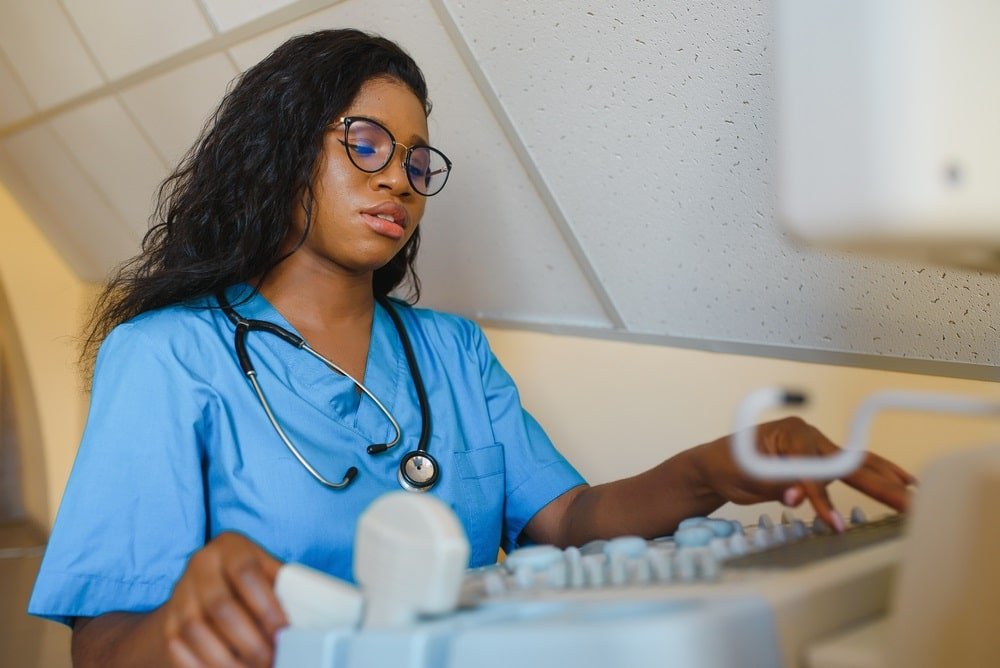A groundbreaking AI-assisted ultrasound technology is poised to revolutionize maternal and newborn healthcare across Africa. This innovative solution promises to save thousands of lives by enabling early and accurate prenatal exams, especially in regions such as South Africa, Ghana, Rwanda, and Uganda.
Expanding Access to Prenatal Care
With the introduction of AI-assisted ultrasound, midwives are now able to conduct examinations using a portable probe linked t o an AI system. This advancement significantly increases access to prenatal care, potentially reducing maternal and newborn mortality rates by democratizing access to essential medical services.
Addressing Healthcare Disparities
Inadequate access to specialists and the high cost of equipment have historically prevented many Africans from receiving ultrasound scans. According to the British Medical Journal, the European Union has an average of 33 doctors per 10,000 people, while Africa averages only one doctor per 10,000 people. Pregnant women often have to travel long distances to see medical specialists in remote areas. However, a new AI-based innovation aims to change this.
The Technology at Work
This technology enables midwives and nurses to perform ultrasound checks by simply placing a tiny probe, about the size of a smartphone, over a woman’s abdomen. The ScanNav FetalCheck software, currently being piloted in Uganda, enhances ultrasound imaging without requiring expert assistance. Similar trials are underway in Rwanda, Ghana, and South Africa.
Rwanda’s Pioneering Initiative
Rwanda has launched an advanced initiative called “Disrumpere,” which uses a portable ultrasound probe with AI capabilities. After a brief training session, non-specialists can use this technology to accurately and affordably monitor pregnancies. The AI system automatically takes the necessary measurements for fetal development.
By integrating AI into prenatal care, this technology marks a significant step towards improving maternal health in Africa. It makes it easier and more affordable for women to receive crucial ultrasound scans during pregnancy, heralding a new era in healthcare accessibility on the continent.



